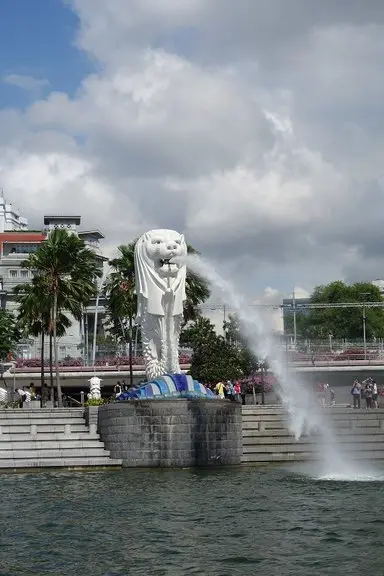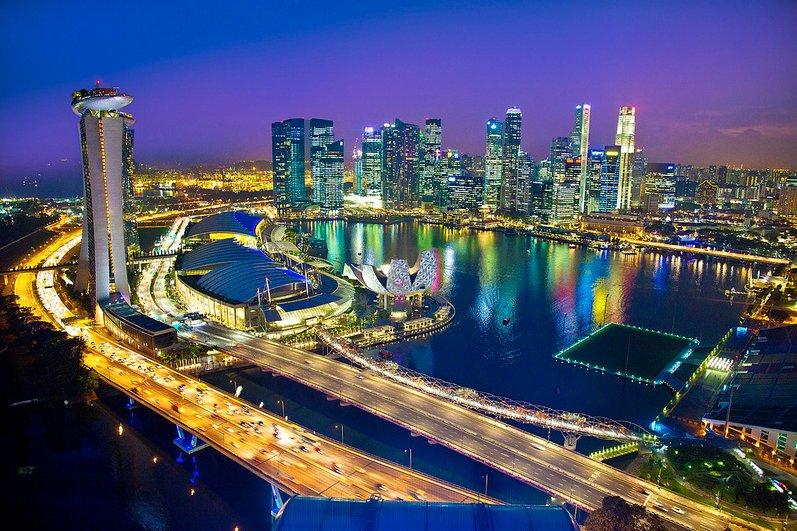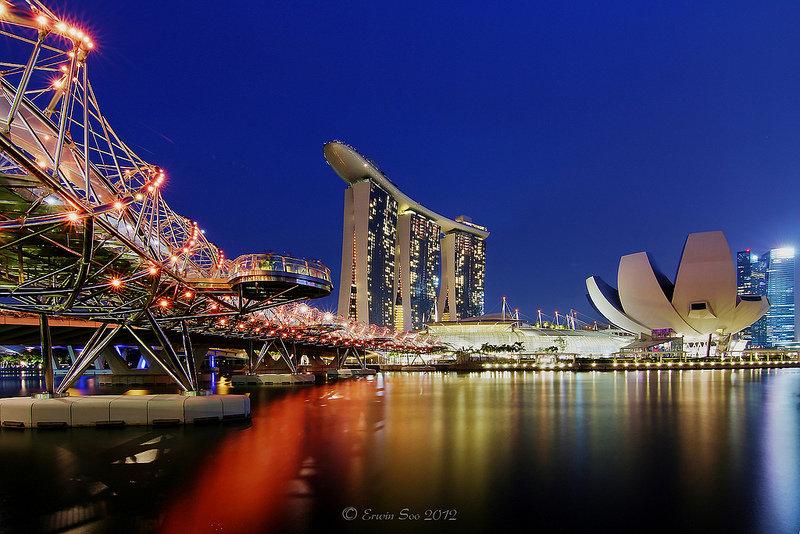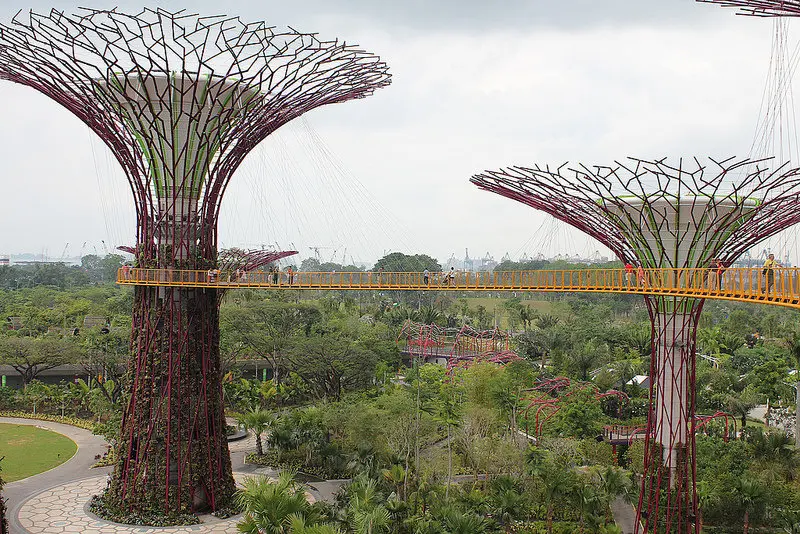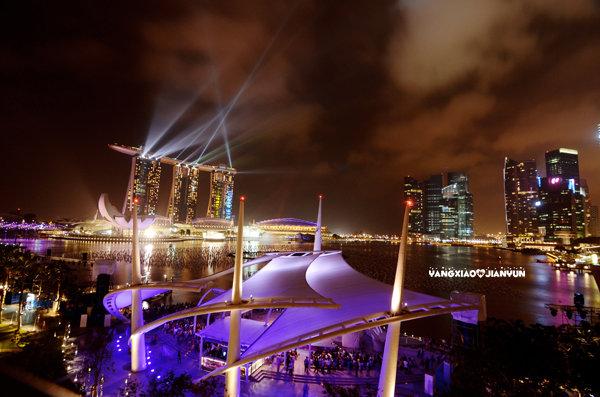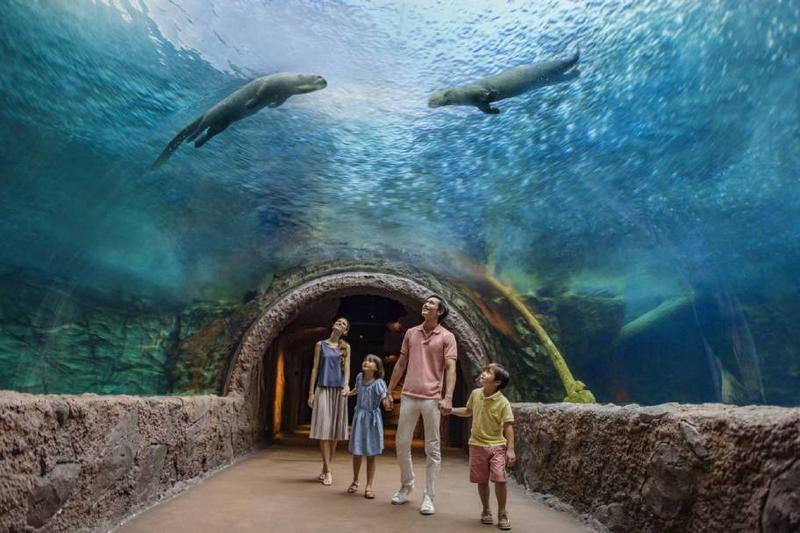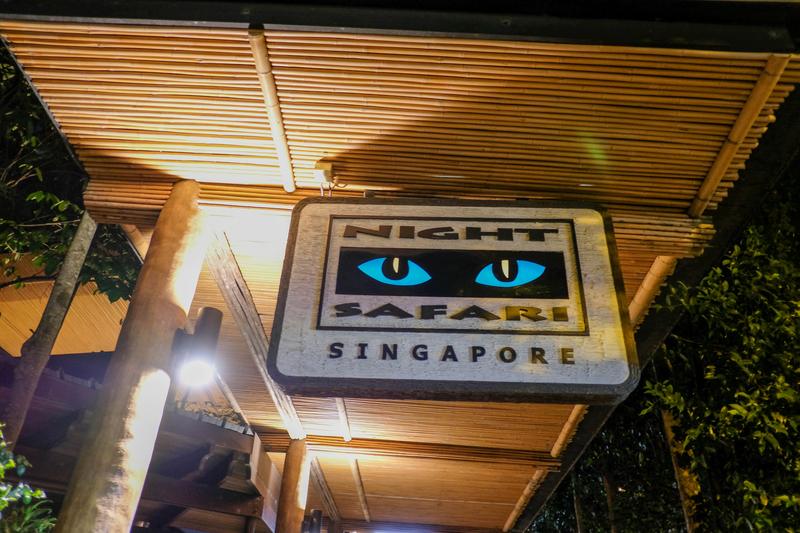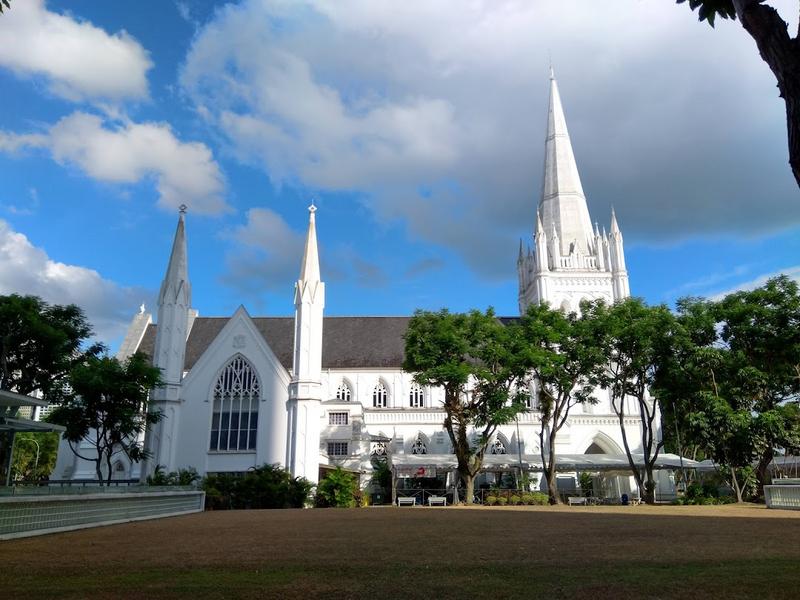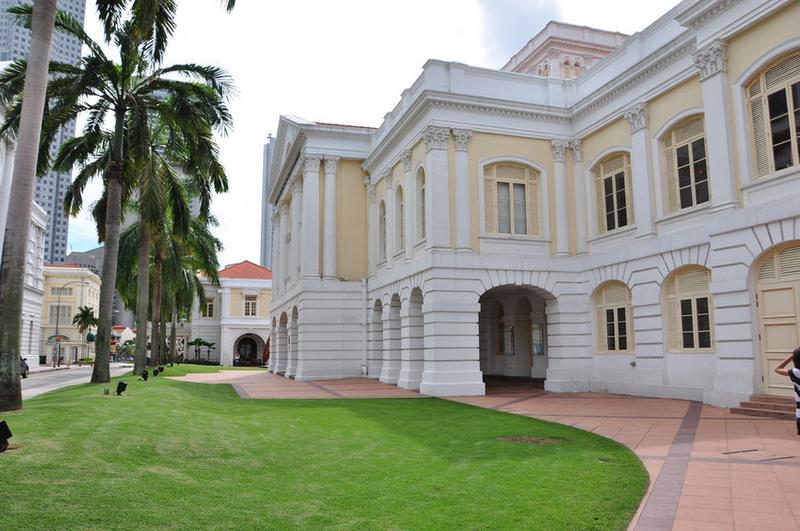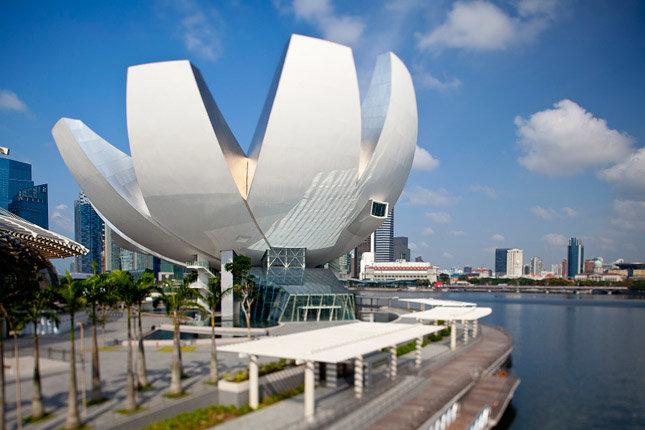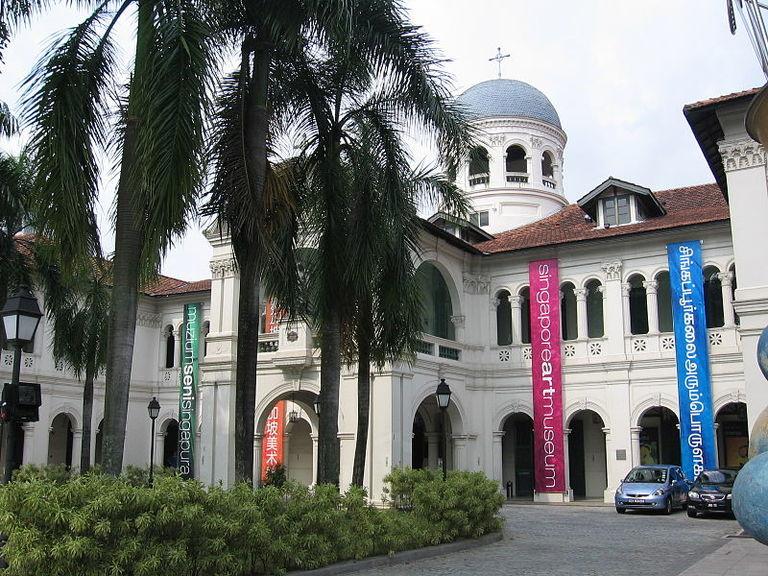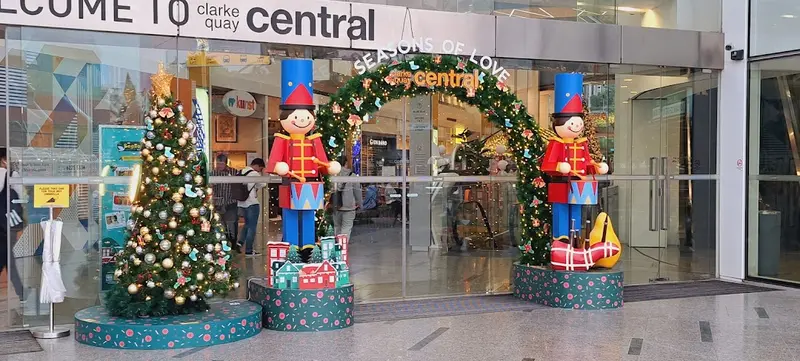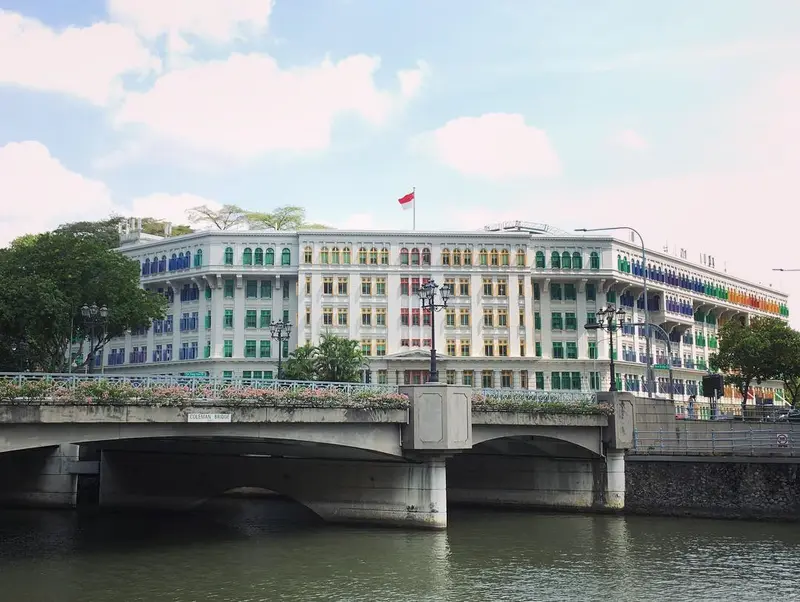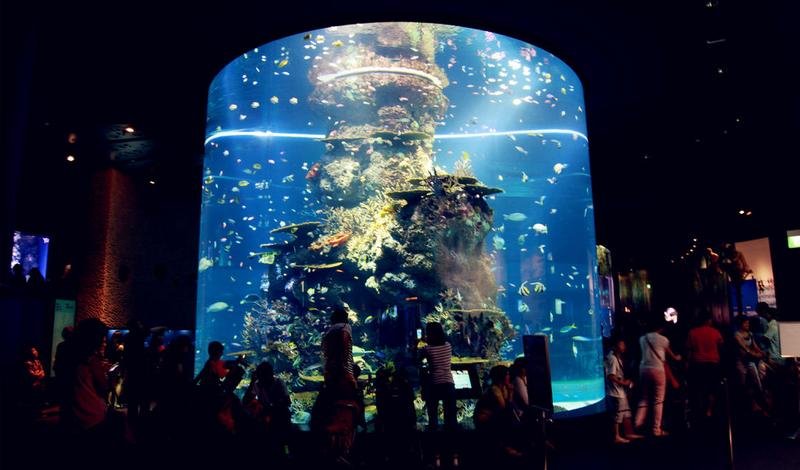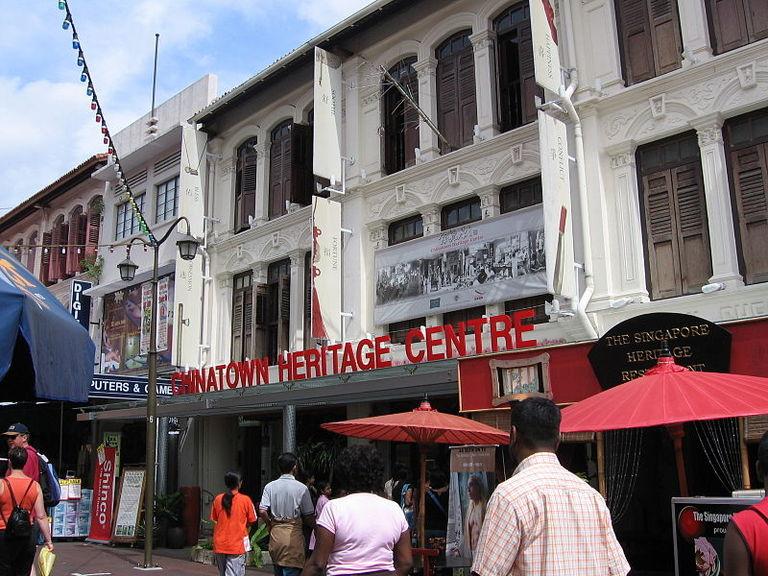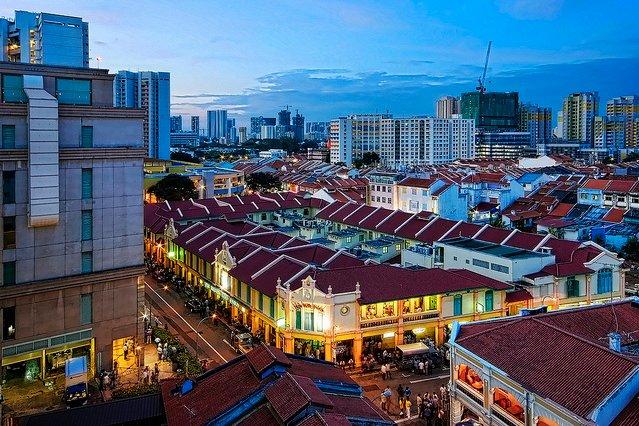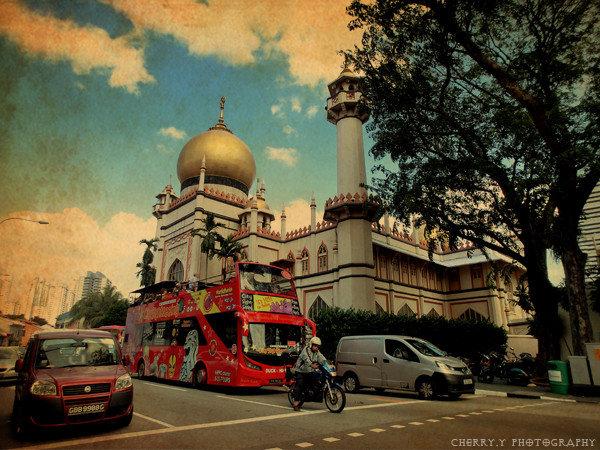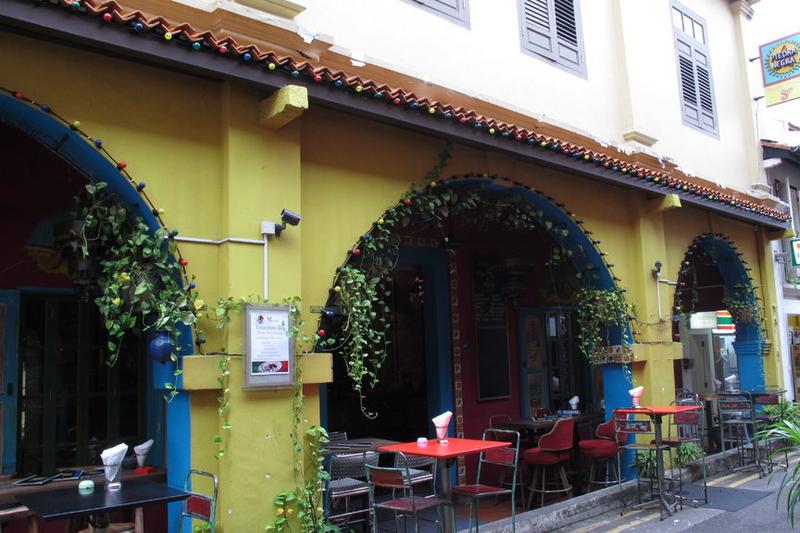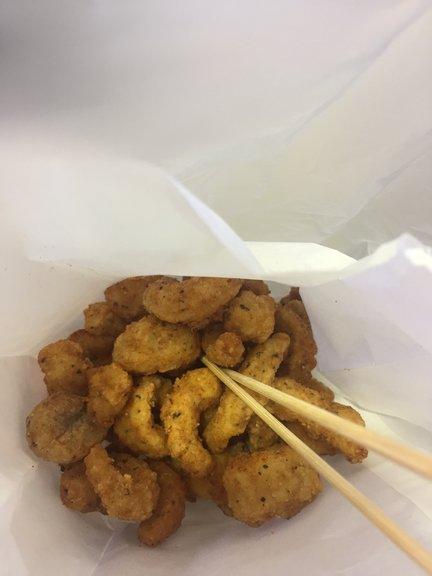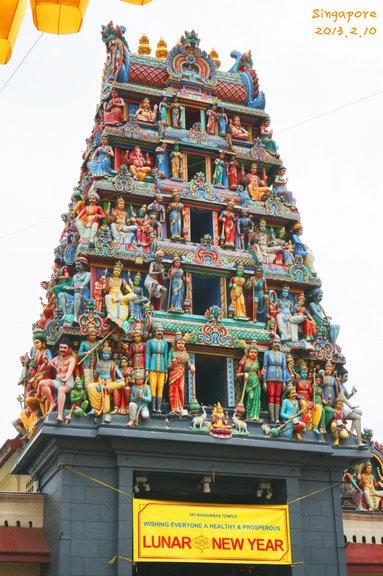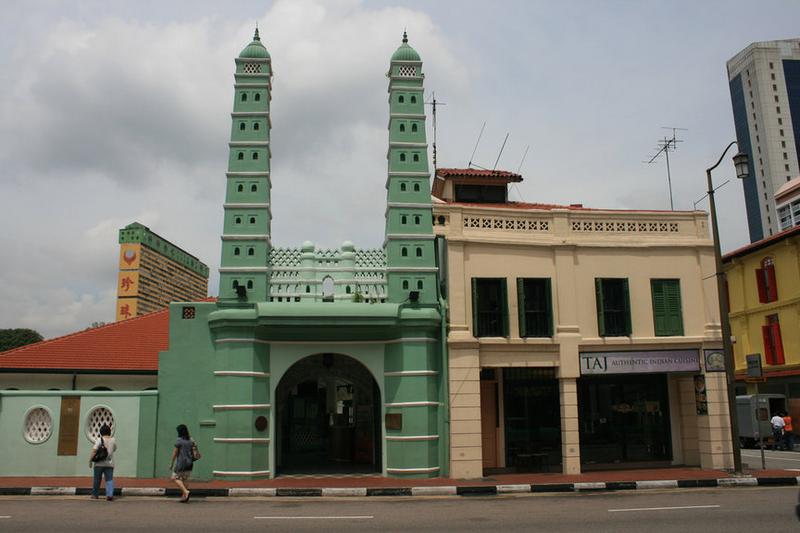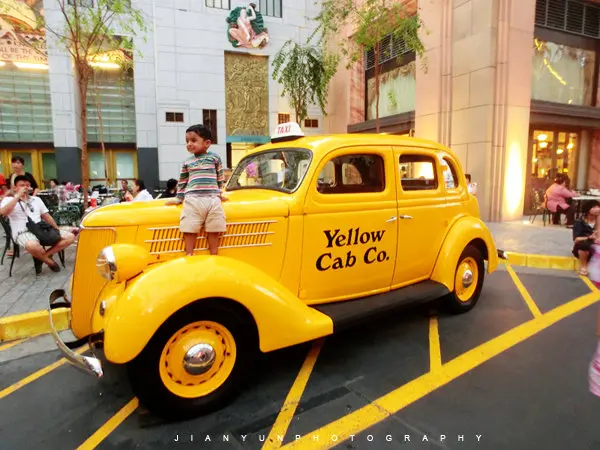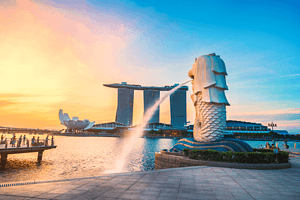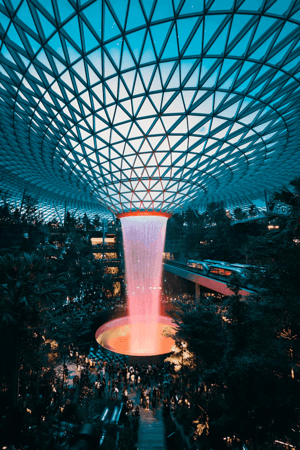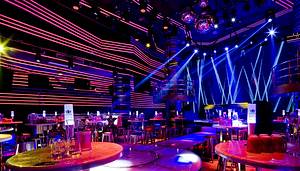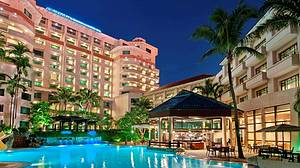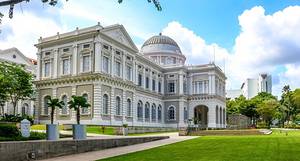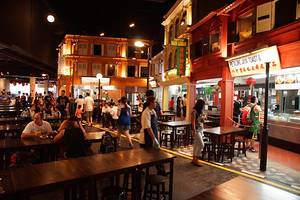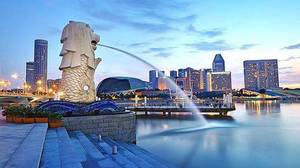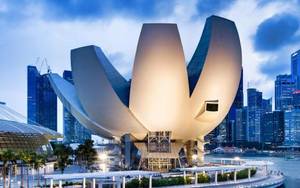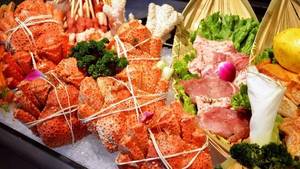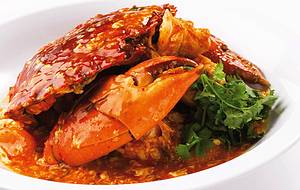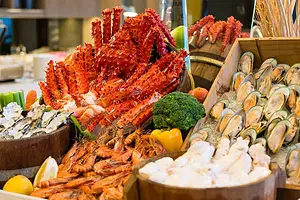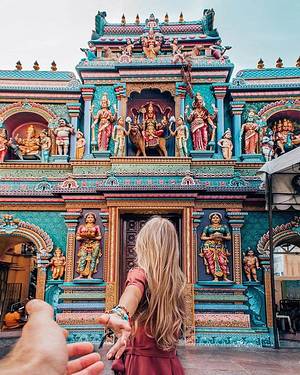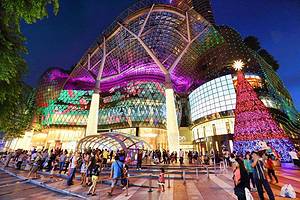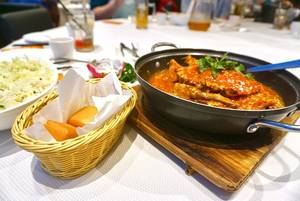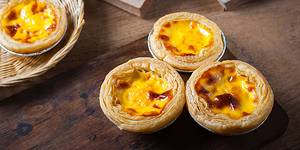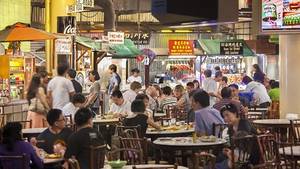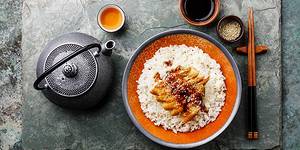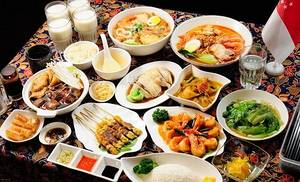Seven Days in Singapore
2 cities |
22 attraction(s) |
total distance 57
km
 TIPS
TIPS
Day1
Day2
Day3
Day4
Day5
Day6
Day1: Singapore
5 attraction(s) ·
4 km
1
The Merlion is an iconic landmark in Singapore, located on the Singapore River in the city center. It symbolizes the country's development from a small fishing village. The design of the Merlion is inspired by a legend in the Malay Annals. In the 11th century, a prince named Sang Nila Utama saw a lion while patrolling Singapura. The lion's head on the Merlion represents that lion, and the fish tail symbolizes the ancient city of Temasek (meaning "sea" in Javanese). Today, the area around Merlion Park has developed into Singapore's financial and commercial center with a skyline of high-rise buildings.
1
km
2
The Singapore Flyer, a towering Ferris wheel standing at 165 meters tall, is situated above a 3-story shopping center. The wheel has a diameter of 150 meters and features 28 capsules, with each one able to hold up to 28 passengers. It takes approximately 30 minutes for the flyer to make a full rotation. Its prime location offers breathtaking views of the Marina Bay Arts Centre, Marina Bay Sands Hotel, F1 Singapore Grand Prix circuit, and the Science Art Museum, as well as sights that are 45 kilometers away, such as Batam Island, Bintan Island, and the Johor state. Riding the Flyer provides a spectacular experience with gentle rotations, allowing passengers to enjoy the view at ease. After the ride, visitors can indulge in the themed food court beneath the Flyer which seats over 800 people and gives off a retro vibe from the 1960s.
1
km
3
The Helix Bridge is an important landmark in Singapore, connecting Marina Bay and Marina Centre. This 280-meter-long pedestrian walkway opened on April 24, 2010, and is the world's first curved bridge. Inspired by DNA structures and the Yin Yang philosophy in Asian culture, it symbolizes Singapore's "never-ending vitality" and can bring wealth, happiness, and prosperity to Marina Bay. Together with Marina Bay Sands and the Singapore Flyer, it forms a group of modern art-style buildings. During the day, you can overlook the Singapore River, government buildings and the Marina Bay area from the bridge, while at night it is beautifully lit. In addition, the Helix Bridge also connects landmark buildings such as the Merlion, Marina Bay Art Centre and Marina Bay Sands Hotel, making it an important pedestrian walkway.
1
km
4
Singapore has a new landmark that won the 2012 World Building of the Year Award. It is composed of the Flower Dome, Cloud Forest, 18 Supertrees, Heritage Gardens, World of Plants, Dragonfly and Kingfisher Lakes. The Children's Garden is the latest addition, designed specifically for children.
The garden covers an area of 101 hectares and has over 250,000 rare plants. It is divided into three parts: Bay South, Bay East, and Bay Central. Walking along the waterfront pathway, you can see the entire city skyline of the Marina Bay Financial District, which is very charming. Here, you can take a night walk or have a picnic with family and friends, which is very comfortable and pleasant.
2
km
5
The Esplanade - Theatres on the Bay, located next to the Marina Bay in Singapore, is a famous performing arts venue with a unique durian-shaped dome. It features a concert hall, theater, rehearsal rooms, outdoor performance spaces, and also houses Singapore's first arts library - the Esplanade Library which holds a large collection of music, dance, film, and theater materials. The center also has a shopping center and international restaurants. Audiences can enjoy various local and international performances including musicals, concerts, dance, theater, outdoor performances, and lunchtime concerts, some of which are free. Additionally, visitors can also enjoy the beautiful night view and capture moments with a tripod.
Day2: Singapore
2 attraction(s) ·
1 km
1
Zoo & aquarium with a river theme offering boat rides, freshwater fish & animals, including pandas.
1
km
2
The world's first nocturnal wildlife park, the fun of visiting a night zoo lies not in seeing animals, but in finding them. You can also ride on a tour bus, shuttle between 7 different geographical regions of the world, from the rugged foothills of the Himalayas to the swampy riverbanks of Asia's river zone forest.
Day3: Clarke Quay Central > Singapore
6 attraction(s) ·
5 km
1
This expansive cathedral offers complimentary guided tours of its sanctuary in early Gothic style.
1
km
2
旧国会大厦建于1827年,是新加坡最古老的政府建筑之一,曾是新加坡民选代表的议会场所。国会大厦的会议对公众免费开放,并为英语、马来语、华语和淡米尔语提供翻译服务。这座殖民地式建筑由乔治科尔门(George Coleman) 设计,是新加坡民主制度下的国会大厦。如今,这座建筑已被改成旧国会大厦艺术之家。旧国会大厦艺术之家是一个非常吸引人的地方,展示了国内外艺术家创作的现代视觉艺术、音乐、舞蹈、电影和话剧作品。在“时光的长廊”中,参观者可以从展品中了解当年国会大厦的历史和众多著名历史人物的故事。另外,别忘了看到这座国家建筑外雄伟的铜像,它是1871年由泰国拉玛五世国王赠予的礼物。现在,新加坡国会已经迁移到旁边的国会坊一号,旧国会大厦成为了“艺术之家”,拥有一系列现代艺术设施,例如小型电影院、音乐厅、黑盒子剧场、排练室、接待室、视觉艺术展览厅和宪法史展览厅。议会厅的座椅上标明了官员的姓名,其中最受欢迎的是前总理李光耀的座位。旧国会大厦真的是一个值得一游的地方。
1
km
3
The ArtScience Museum is located in Marina Bay Sands and is one of the famous attractions in the area. The museum aims to explore the power needed for creative thinking, including how to acquire and use skills, and showcases the huge changes that have occurred as a result in the surrounding world. The museum hosts various exhibitions and programs, perfectly combining design, content, and knowledge discussion, inspiring creativity. With 21 exhibition spaces and an area of 4,645 square meters, the museum is an ideal venue for hosting large international touring exhibitions of renowned collections globally.
2
km
4
The National Gallery Singapore, also known as the Singapore Art Museum, originated from the century-old St. Joseph's Institution. Established in 1996, the museum has a collection of over 400 artworks and is one of the largest museums in the world to collect local and modern Southeast Asian art. It is at the forefront of Southeast Asian standards in terms of exhibition scale, open galleries throughout the day, and modern visual equipment. The National Gallery Singapore holds a global art event known as the Singapore Biennale every two years, which has become one of the museum's main activities.
1
km
5
Mall with restaurants & nightlife in a redeveloped, 19th-century commercial district by the river.
1
km
6
The Old Hill Street Police Station was built in 1934 and served as both a police station and barracks. At the time, it was the largest government building and was considered a modern skyscraper. In 1998, it was declared a national monument and became the office location for the Ministry of Information, Communications and the Arts (now the Ministry of Communications and Information). Since 2000, the building has been renamed the Old Hill Street Police Station and houses the Department of Culture, Community, and Youth. Prior to this, it was a public hall that was used as a theater and school. The entire building has 927 vibrant and mesmerizing rainbow-like windows, with the first four floors having the same intensity of colors, showcasing a strong sense of vitality. The colors gradually deepen on the fifth and sixth floors, highlighting the unique charm of the cantilevered terraces. These features greatly impress visitors.
Day4: Singapore
8 attraction(s) ·
11 km
1
This is the largest oceanarium in the world, with displays of marine life organized according to geographic location, including the Caribbean Sea, Java Sea, Malacca Straits, Andaman Sea, Bay of Bengal, Maldives, Persian Gulf, Arabian Sea, Red Sea, East Africa, and South China Sea. The most striking feature of the interior is the world's largest ocean window. Looking at the swimming fish from the enormous glass window can give people a sense of awe in the underwater wonderland.
4
km
2
Before the British landed in Singapore in 1819, Chinese laborers had already begun planting betel nut and pepper. With the influx of more Chinese immigrants, Sir Stamford Raffles designated the area along the southwest bank of the Singapore River as the Chinatown. At the time, Singapore had no piped water, and so the only water source for the whole city was from wells at An Xiang Mountain and Serangoon Road, which were transported by ox-carts. Hence, the area became known as Chinatown.
Today, the Chinatown Heritage Centre is housed in a regular shophouse along Pagoda Street. It is a place that showcases the early life of Chinese immigrants. Since most of Singapore's Chinese immigrants came from three provinces - Fujian, Guangdong, and Hainan, the place is rich in southern Chinese culture. The museum is small with only three shops and reconstructed living quarters, but it is rich in content. It feels as though visitors have traveled back in time to the 19th century, experiencing the hardships that Chinese immigrants faced as they struggled to make a living.
3
km
3
Little India is a gathering place for Singapore's Indian community, with the earliest Indian immigrants arriving in 1819, followed by more Indian communities settling here, forming the scale of today. Little India has many ancient shops and small stalls scattered along the roadside, alleys, and backstreets, where residents can purchase necessities. Here, you can experience the rich Indian folk culture, such as Serangoon Road, one of Singapore's oldest roads, which evolved from a name story. Sri Veeramakaliamman Temple, specializing in the worship of the goddess Kali, is one of the must-see attractions in Little India. The bustling Saturday and Sunday evenings are particularly lively, as Singaporean Indian workers like to come here to eat, shop, or hang out with friends. Mustafa Centre, a shopping center in Little India, has affordable prices and sells a variety of Indian-style household decorations, clothing fabrics, electronic products, and other Indian-style products. In Little India, you can also experience henna tattoos. In addition, The Banana Leaf Apolo, Muthu's Curry Restraurant, and Komalas Vegetarian Snacks are also worth a try. Although there have been riots in the past, Little India is currently safe, and it is recommended that everyone experience this place with ethnic features.
2
km
4
Sultan Mosque is one of the famous mosques in Singapore, built in the early 18th century. This historic building was declared a national monument of Singapore on March 14, 1975. Sultan Mosque is located at the end of Bussorah Street, which offers the best view of the architecture. Bussorah Street is a popular tourist destination for locals and visitors, as it is home to many cafes, antique shops, and traditional clothing stores.
1
km
5
Haji Lane is located in Kampong Glam, Singapore. It is a tranquil alley with many unique small shops that are worth exploring. In the past, this lane was an empty street with pre-war buildings on both sides. Today, the influx of local designers and young entrepreneurs has brought new vitality to this old lane. Many designers and entrepreneurs have opened personalized boutique fashion stores here, specializing in selling various fashionable accessories and items with a Singaporean local flavor.
1
km
7
The Sri Mariamman Temple in Singapore is one of the oldest Hindu temples in the city. Built in 1827, it is dedicated to the goddess Mariamman and is believed to have healing powers. The temple is a true example of Dravidian architecture and is now a national monument of Singapore.
Visitors can see the influence of South Indian architecture in the temple's tower, which features sculptures of gods and mythical beasts. Details like carved deities on the walls, doors adorned with bells, and murals on the canopy can also be observed.
In addition to celebrating the Thimithi Festival, the Sri Mariamman Temple is a popular venue for Hindu weddings. People of all religious beliefs come to the temple to seek blessings and healing from the deities, believing in their magical powers.
1
km
8
This mosque was built in 1826 and is one of the earliest mosques in Chinatown. It is also one of the three earliest mosques built by Indian Muslims in southern India. Its architecture is very unique, with a front that looks like a finely complex palace with small doors and cross-shaped windows. The entrance is in the typical South Indian style, while the two prayer halls and temple exhibit a neoclassical style. Therefore, despite the mosque having a crescent moon symbol, its architectural style is very different from that of Chinese mosques.
Day5: Singapore
1 attraction(s) ·
0 km
1
Universal Studios is a theme park under the Universal Studios brand in Asia, with multiple areas including Hollywood, New York, Ancient Egypt, Sci-Fi City, and Far Far Away. One of the most popular attractions is the world's tallest dueling roller coaster, which features intense zero-gravity spins, corkscrew twists, vertical drops, and near-collisions with other cars. Additionally, the new Transformers 3D Battle is not to be missed. There are also multiple restaurants and souvenir shops in the park where visitors can enjoy food and shopping entertainment. Tip: UnionPay cards are accepted for ticket purchases and by merchants in the park.
Day6: Singapore
1 attraction(s) ·
0 km
1
This is the largest oceanarium in the world, with displays of marine life organized according to geographic location, including the Caribbean Sea, Java Sea, Malacca Straits, Andaman Sea, Bay of Bengal, Maldives, Persian Gulf, Arabian Sea, Red Sea, East Africa, and South China Sea. The most striking feature of the interior is the world's largest ocean window. Looking at the swimming fish from the enormous glass window can give people a sense of awe in the underwater wonderland.
